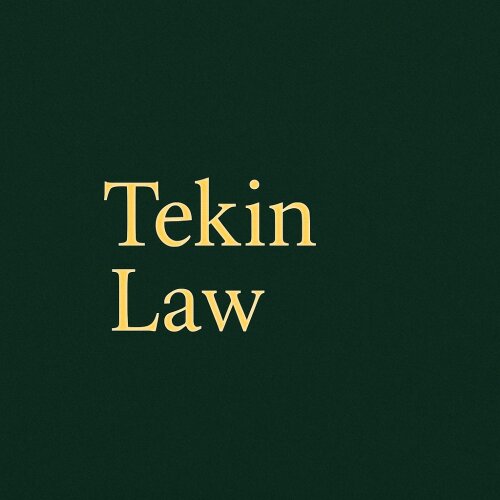Best New Business Formation Lawyers in Istanbul
Share your needs with us, get contacted by law firms.
Free. Takes 2 min.
List of the best lawyers in Istanbul, Turkey
Legal guides written by Tekin Law Firm:
- Arbitration in Turkey
Turkey New Business Formation Legal Articles
Browse our 1 legal article about New Business Formation in Turkey written by expert lawyers.
- Registering a Company in Turkey: A Guide for Foreign Investors
- Turkey's strategic location bridging Europe and Asia, combined with its large domestic market and ongoing economic reforms, has made it an increasingly attractive destination for foreign investors. The Turkish government has taken significant steps to streamline the company registration process, making it more accessible for international entrepreneurs looking to establish... Read more →
About New Business Formation Law in Istanbul, Turkey
In Istanbul, the new business formation process is governed by the Turkish Commercial Code and other related laws. These regulations provide a legal framework for starting, registering, operating, and closing a business. In recent years, Turkey has made it easier for entrepreneurs by enforcing legal reforms to reduce bureaucracy, increase transparency and promote investment. To start a business, one will need to decide on the type of business entity, register with the Trade Registry Office, obtain the necessary licenses and permits, and fulfill tax obligations.
Why You May Need a Lawyer
While it's possible to form a new business in Istanbul without legal help, hiring a lawyer can save you from future complications. Interpretation of legal provisions, dealing with bilingual documents, understanding the local business culture, and navigating through complex procedures are some of the areas where you might require legal assistance. A lawyer can also help in assessing risks, crafting business contracts, ensuring the protection of intellectual property, and dealing with disputes if they arise.
Local Laws Overview
Turkish Commercial Code plays a pivotal role in new business formation in Istanbul, Turkey. It states that businesses can be formed under various legal forms, such as Limited Liability Companies, Joint-Stock Companies, Commandite Companies and Collective Companies. Depending on the selected form, minimum capital requirements and liabilities vary. Additionally, businesses must comply with the corporate tax law, environmental laws, labor laws, and industry-specific regulations. Non-Turkish residents may also need to understand laws on foreign investment and business visa requirements.
Frequently Asked Questions
1. How long does it take to set up a business in Istanbul?
The process can take between a week to a month depending on the type of the business, as obtaining certain permits may require additional time.
2. Can foreigners start a business in Istanbul?
Yes, non-Turkish residents can set up a business with 100% foreign ownership, although some sectors might have restrictions on foreign capital.
3. Are there tax benefits for startups in Istanbul?
Yes, Istanbul provides various tax incentives for newly established businesses in certain sectors and development regions, subject to certain conditions.
4. What are the most common types of businesses in Istanbul?
The most common types of businesses are Limited Liability Companies and Joint-Stock companies due to their flexibility and limited liability characteristics.
5. Can a single person establish a company in Istanbul?
Yes, a single individual can establish a company in Istanbul according to the Turkish Commercial Code.
Additional Resources
You can seek help from governmental bodies such as the Ministry of Trade, Invest in Turkey, and Istanbul Chamber of Commerce. Additionally, the Guidance on Doing Business in Turkey by PWC and the Ease of Doing Business Report by the World Bank also provide valuable insights.
Next Steps
If you require legal assistance in new business formation in Istanbul, consider contacting a local law firm or a consulting agency that specializes in business law. They can provide accurate advice based on your specific requirements and assist you through the entire process. Don't forget to validate their credentials and go through their client reviews before retaining their services.
Lawzana helps you find the best lawyers and law firms in Istanbul through a curated and pre-screened list of qualified legal professionals. Our platform offers rankings and detailed profiles of attorneys and law firms, allowing you to compare based on practice areas, including New Business Formation, experience, and client feedback.
Each profile includes a description of the firm's areas of practice, client reviews, team members and partners, year of establishment, spoken languages, office locations, contact information, social media presence, and any published articles or resources. Most firms on our platform speak English and are experienced in both local and international legal matters.
Get a quote from top-rated law firms in Istanbul, Turkey — quickly, securely, and without unnecessary hassle.
Disclaimer:
The information provided on this page is for general informational purposes only and does not constitute legal advice. While we strive to ensure the accuracy and relevance of the content, legal information may change over time, and interpretations of the law can vary. You should always consult with a qualified legal professional for advice specific to your situation.
We disclaim all liability for actions taken or not taken based on the content of this page. If you believe any information is incorrect or outdated, please contact us, and we will review and update it where appropriate.
















